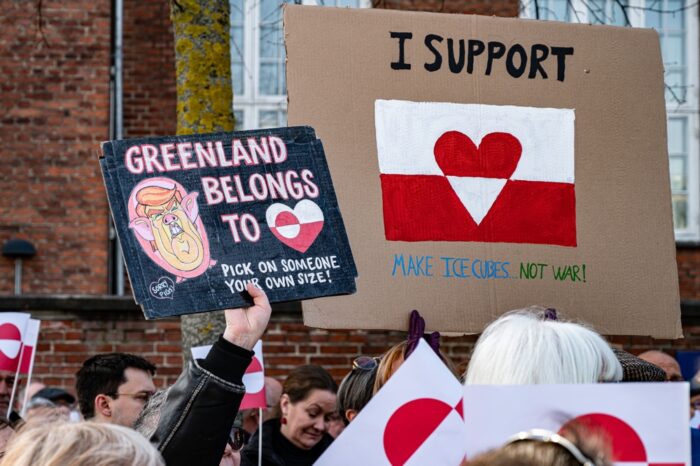The Progressive Post
US-EU relations: back on track, but for how long?

In recent months, the transatlantic relationship has reached a constructive equilibrium. Both the EU and the US have taken concrete steps to bolster the multilateral order and combat illiberal forces at home. But progressives on both sides of the Atlantic should be realistic about the daunting challenges that lay ahead, and European policymakers should plan for worst-case scenarios.
EU-US relations got off to a rough start after Joe Biden’s election in 2020. The rapid and ill-planned withdrawal of US forces from Afghanistan in August 2021, the announcement of the AUKUS security pact the following month, and protectionist measures such as the 2022 Inflation Reduction Act understandably left many Europeans wondering whether Biden would represent a significant improvement over his predecessor, Donald Trump.
Yet, as time passed, a more promising dynamic emerged, and both the US and EU have been doing their part to contribute to a more secure and progressive world. Though both sides could do more, the transatlantic contribution has been essential to Ukraine’s war effort against Russia. NATO has been strengthened both by its robust response to Russia’s invasion of Ukraine and its addition of Finland and the looming accession of Sweden. The EU’s adoption of an Indo-Pacific strategy and growing security ties with key regional actors, such as Japan, dovetail nicely with the Biden administration’s efforts to simultaneously reinvigorate the US alliance system in East Asia and de-escalate tensions with China. The recently-formed Partnership for Atlantic Cooperation should help efforts to bolster non-military security and to deepen cooperation with the Global South, and the India-Middle East-Europe Economic Corridor is designed to strengthen geo-economic ties between Europe, the Middle East, and South Asia.
At home, the Biden administration has at least halted, if not begun to repair, the worst problems caused by rising right-wing populist illiberalism. Meanwhile, Europe has seen some positive election results. These include the 2021 election of a centre-left government in Germany, what appears to be a surprising but welcome victory of the opposition in Poland, and the 2022 presidential election loss of the populist right-wing candidate in France – though the French centre-left recently has struggled.
Unfortunately, enormous challenges loom and maintaining the constructive trajectory of EU-US relations will be difficult. In domestic affairs, both sides are plagued by illiberal movements that pose a threat to transatlantic security. This is particularly true in the United States, where a large majority of the Republican party incorrectly believe the 2020 election was fraudulent and close to half of Republicans in the House of Representatives favour reducing funding for Ukraine. Many in the Republican Party are susceptible to a version of contempt for Europe last seen in the 1940s. This modern incarnation of anti-Europeanism is characterised by disdain for European institutions and values, a growing unwillingness to contribute to upholding the transatlantic security architecture, and admiration for transnational illiberal political movements. Most worryingly, in spite of the legal challenges he faces, betting markets now view Trump as the most likely victor in the 2024 US presidential election. If elected, he will try to sabotage NATO. In Europe, extremist parties such as Le Pen’s National Rally, in France, and the AfD in Germany, are hostile to European defence cooperation, the EU, and to NATO, at least in its current form.
Relations with China post another challenge to fruitful EU-US relations. In spite of recent subtle signals that it welcomes a modest reduction in tensions, Beijing appears committed to an authoritarian and expansionist path. US intelligence estimates that the Chinese military has been instructed to be prepared for an invasion of Taiwan by 2027. Washington and Brussels lack consensus on how to respond to hostilities in the region. The US is likely to assist Taiwan, whereas EU member states have sent inconsistent signals about their intentions.
Other international security challenges on which the US and EU will continue to differ are the urgency of addressing climate change – Europe has a better track record and has formulated more aggressive plans – and the failure of most European NATO member states to spend at least 2 per cent of GDP on defence, a key complaint on the US side.
One of the key challenges to maintaining transatlantic unity on key challenges is the conflict between Hamas and Israel. Both Americans and Europeans expressed initial sympathy for Israeli deaths and condemnation of Hamas. However, in the broader context of the Israel-Palestine conflict, with some exceptions, Europeans have tended to be more sympathetic to the Palestinian cause – though divisions exist amongst both policymakers and the broader public – and Americans have been more likely to back Israel.
This latent division is likely to re-emerge, in large part due to US policy. Behind the scenes, after initial unreserved support for Israel, the Biden administration has played a restraining role in an attempt to curtail violations of international law. This has included urging the Israelis to delay their invasion of Gaza and to do more to protect civilians. However, in spite of growing pressure from progressive Democrats, there are few incentives for Biden or other US policymakers to use the most powerful tools at their disposal to influence Israeli behaviour, such as the $3 billion in annual US military aid.
There is also the danger that a regional conflict could emerge, with the involvement of Iran or its proxies, such as Hezbollah. Though this threat appears to have receded somewhat, it has not disappeared. Such a war could lead to direct US military intervention and place European policymakers in an uncomfortable position, especially if the humanitarian situation in Gaza does not improve. Europe already faces security challenges linked to the region in the form of radical domestic groups. In addition, migration, which under usual circumstances is an asset, could strain capacity in the event of sudden large-scale increases. A broader war in the Middle East would exacerbate the problem of domestic extremism and complicate the issue of migration, and would likely increase pressure from European policymakers on Israel to accept a ceasefire.
For too long, the transatlantic relationship has been in need of modernisation. To their credit, European and US policymakers have finally made some headway on this front. But their progress has been modest and could easily be reversed. This means that European policymakers should be planning simultaneously for two different scenarios. They should continue to prioritise constructive relations with the United States, but they also need to accelerate plans to develop more robust institutions and capabilities. This will allow the EU and its member states to safeguard their security and prosperity, regardless of what occurs at the next US election.
Photo credits: Shutterstock.com/Alexandros Michailidis




